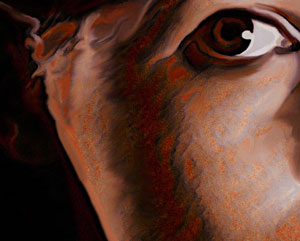Knowing the names of things gives one a power, the myth goes, over the thing itself. Yet Lacan and others argue that we don’t ever know the true name of things, because the words we’ve attached to the objects of the world are arbitrary. So, Cami, for you, what’s in a name? Would a rose, by any other name, still smell as sweet?
I think a rose by any other name would still smell like itself, but I wonder how our perception of it—the rose, its smell—would change if it had no name at all?
What is it, that dark and bitter, necessary thing?
For lots of people it’s coffee; for me, chocolate.
That child—the little one, the small daughter, the girl, her only child, her little girl—finally gets a name: Sophie, a name that means “wisdom.” What else does it mean?
The name “Sophie” has a clean connotation to me, like soap. I’m not sure why I chose it for the purposes of the story—it was always just “Sophie.” I didn’t even know it means “wisdom” till now, but that works out nicely, doesn’t it?
What certainty of purpose is contained within [an object’s] letters that is not contained within itself?
I suspect the certainty of purpose is contained within ourselves rather than the object.
You, Cami, are an amazing flash fiction writer. Why do you write such pieces? What is the appeal, as a writer, of the short short?
I think lives are defined more by small epiphanies than grand narratives. I feel the density of emotion required by a short form is the best, and most challenging, vehicle with which to portray these moments.



 In its third year, The March Micro Marathon will be, as usual, a prompt-a-day whirlwind for 24 days. You’ll exchange drafts of micro fiction, non-fiction, and prose poetry in small groups and gather for a series of online events (all recorded for participants unable to attend live). We’ll finish with 3 competitions, and participants who are not already in SmokeLong Fitness will be invited to workshop with SmokeLong Fitness until the end of April!
In its third year, The March Micro Marathon will be, as usual, a prompt-a-day whirlwind for 24 days. You’ll exchange drafts of micro fiction, non-fiction, and prose poetry in small groups and gather for a series of online events (all recorded for participants unable to attend live). We’ll finish with 3 competitions, and participants who are not already in SmokeLong Fitness will be invited to workshop with SmokeLong Fitness until the end of April!